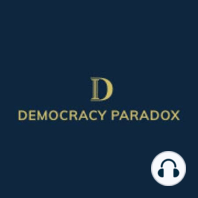58 min listen

Michael Hughes on the History of Democracy in Germany
Michael Hughes on the History of Democracy in Germany
ratings:
Length:
56 minutes
Released:
Jan 5, 2021
Format:
Podcast episode
Description
The German Question haunted international relations for generations. Like China, it was a rising authoritarian power. But its successful democratization after the Second World War cast an amnesia upon the uncertainty and anxiety it had caused the international community. Today democracy in Germany is taken for granted. It is a force of democratic stability within Europe and in the world. Its journey from dictatorship to democracy is largely forgotten and its current challenges are often ignored. Some of those challenges have surfaced in recent years. Hessian politician, Walter Lübcke , was assassinated by a far right extremist on June 2nd, 2019 and in August The New York Times reported that Neo-Nazis have established a presence in the ranks of the military and police. Today’s guest Michael Hughes offers a helpful reminder, “Democracy may have prevailed in Germany… but conceptions remain contested… So, crucially, the story’s outcome cannot be an ending… for the process remains ongoing.” Michael is a professor of History at Wake Forest University. His research has focused on 19th and 20th Century German history. He is the author of the forthcoming book, Embracing Democracy in Modern Germany: Political Citizenship and Participation, 1871-2000. I liked Michael’s book because it approaches history like political science. It focuses on the development of democracy through political culture. It is a thicker conception of democracy that goes beyond constitutions and institutions to consider democratization as a process.My plan is to touch on the different regimes throughout Modern Germany’s history, but I also keep a focus on big picture trends. Don’t worry if you are not familiar with Germany. This is a good introduction, but more importantly this is about the process of democratization. The challenges and successes that countries face. This is how I chose to begin 2021. Looking back through history before we begin to move forward. NotesWebsite: www.democracyparadox.comMusic from Apes of the StateRelated ContentPaul Robinson on Russian ConservatismYael Tamir on NationalismThoughts on Sheri Berman's Democracy and Dictatorship in Europe: From the Ancien Régime to the Present DaySupport the show
Released:
Jan 5, 2021
Format:
Podcast episode
Titles in the series (100)
Xiaoyu Pu on China's Global Identities by Democracy Paradox